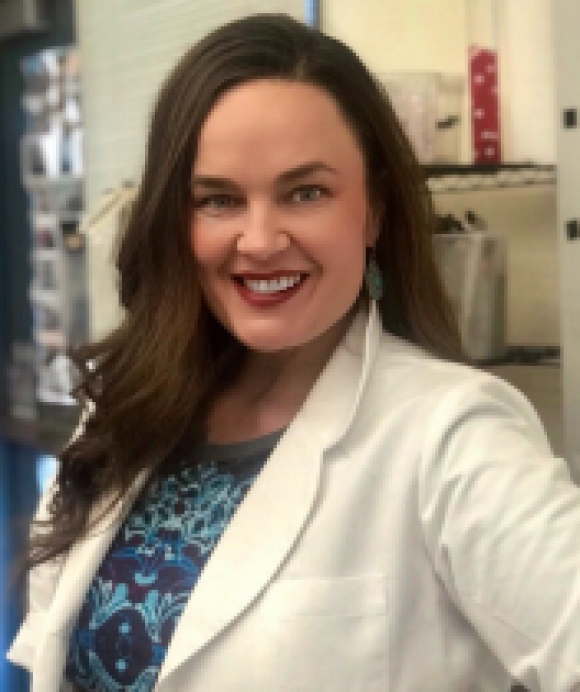Well on her way to becoming a doctor, it wasn’t until Sarah Elizabeth Allen took a six -month solo European sabbatical following her college graduation that she realized the thought of medical school didn’t bring her passion, but a lifetime of teaching science to others would.
Fourteen years later, Sarah’s passion was put to the test when she learned the organization funding her school district’s biotechnology classes was folding. Determined to keep biotech programs alive in local classrooms, Sarah discovered and applied to ABE through the help of a colleague familiar with the program. Sarah now shares her learnings from ABE workshops with 17 science teachers throughout her district, reaching nearly 5,000 students each school year. Sarah says her daily drive is offering her students “new opportunities they otherwise wouldn’t have."
Why do you participate in the Amgen Biotech Experience?
ABE is the perfect program because it gives students and teachers access to the most cutting-edge science equipment and curriculum at no cost to the district. It really does demystify science by showing students how it’s relevant to their everyday lives. It also gives them a leg up for college laboratory courses.
How has the Amgen Biotech Experience helped to engage your students in new ways (e.g., hands-on laboratory experience, good curriculum, classroom tools/resources etc.)?
It teaches my students to look at themselves as science in action. They’re not being taught about doing something, they’re actually doing it. By helping me teach them about medical conditions that could potentially impact their lives, ABE gives the gift of self-awareness, so my students can make better decisions about their own health.
What’s been the most rewarding part of your experience?
Networking with fellow like-minded educators and being trained by people within ABE that share same passion drives me to want to do more, to do better. It’s all about bringing the best of science to my kids, and I feel a great sense of purpose that I’ve been able to bring ABE to my entire district, giving nearly 5,000 students the opportunity to benefit from this curriculum.
Can you share an example of a story where you witnessed a student ‘ah ha’ moment and begin to experience more interest in science?
On a field trip to a research facility last spring, several of my students made the connection that what they were doing in the classroom wasn’t just an assignment, it’s something real scientists do every day. Plus, it’s pretty spectacular that I hear the words, ‘Wow, this is super cool’ from my students on a daily basis.
What impact has ABE had on your students, school and community?
Had we not found ABE, biotechnology would be gone in our district. There’s just not enough funding to go around. ABE not only kept biotech alive in our classrooms, but our biotechnology curriculum is growing district-wide because of ABE.
What kind of support (i.e., professional development) do STEM teachers need to be effective and spark a love for science in their classroom?
We need funding, and the ability to seek training. Being a teacher can be overwhelming at times, there’s just so much to do – which is why I feel lucky to participate in ABE. There’s nothing ABE could do better in terms of training or teacher support.
Name the three most valuable things that science teachers would get out of participating in ABE.
There are so many benefits, but I would say: Relevant curriculum that is streamlined, easy to use, and keeps kids interested; networking and training at weekend and summer workshops; continuing access and support from my ABE district liaison.
